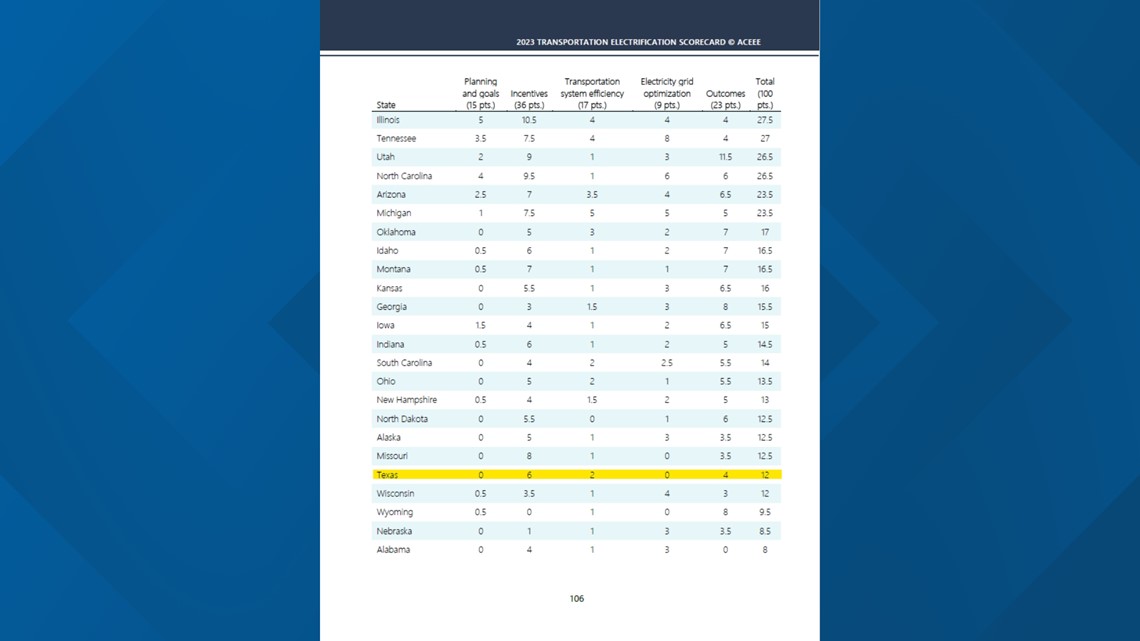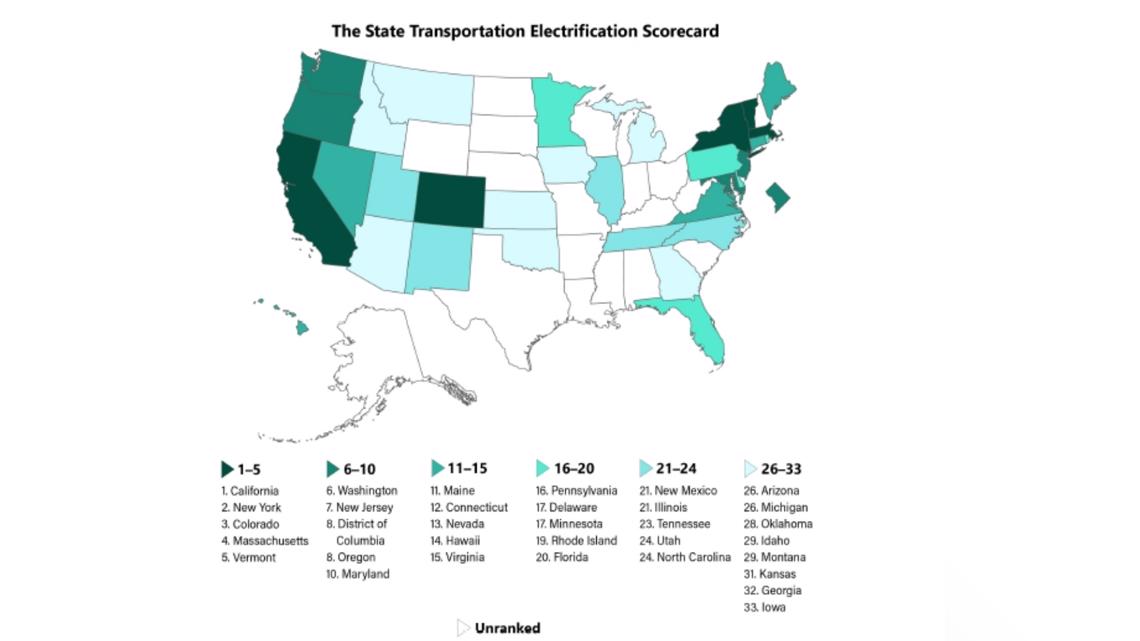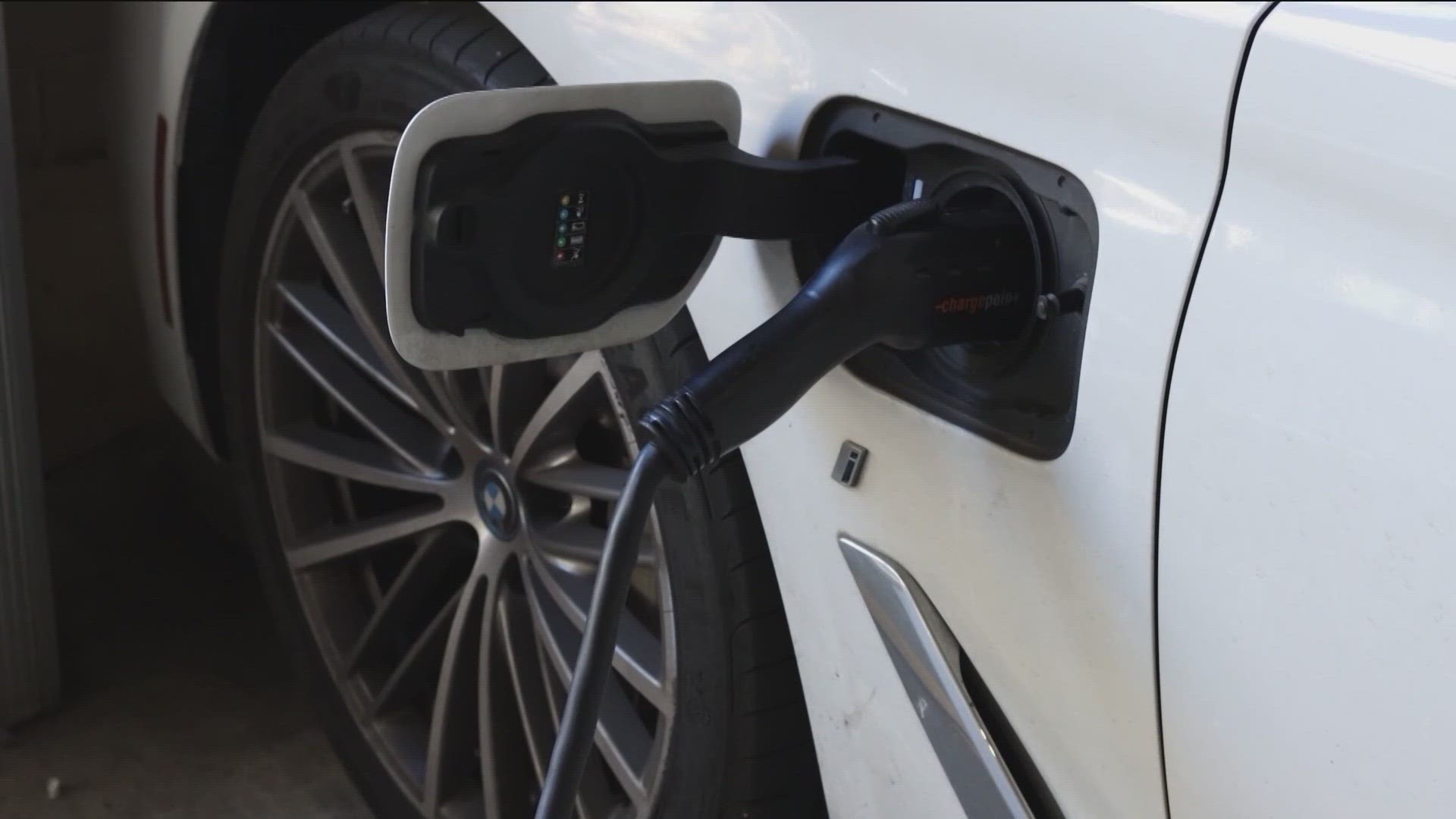AUSTIN, Texas — A new energy efficiency report shows Texas ranks among the bottom states for electric vehicle infrastructure.
The American Council for an Energy-Efficient Economy (ACEEE) is an environmental think tank that creates policies and lobbies for higher energy efficiency standards. Its 2023 State Transportation Electrification report shows Texas ranks 40th for policy and program efforts to improve electric transportation.
“Electrified transportation is the centerpiece of reducing transportation-related emissions,” Shruti Vaidyanathan, ACEEE’s transportation program director, said in a public webinar.
The report shows Texas ranks among the bottom states for electric vehicle infrastructure planning, incentives, transportation efficiency and electric grid optimization.
“The overarching goal of this scorecard is to benchmark all the states on their policies and progress,” Peter Huether, senior research associate for transportation, said in the webinar.
It shows Texas scored zero of nine possible points for electric grid optimization.
“Utilities are continuing to invest in EVs and EV charging infrastructure, and it is up to states and the utility commissions to ensure that these investments are fair and reasonable, incorporate equity and effectively integrate goes on to the grid,” Huether said.
This month, Gov. Greg Abbott signed Senate Bill 2627, providing low-interest loans for existing gas-fueled power plant companies, plus bonuses to build new power plants by 2029.


The optimization score considers, “policies that support the deployment of EVs while maximizing emissions reduction and improving accessible, cost effective, equitable and clean mobility options for all,” the report shows.
“Our report highlights what state actors specifically are doing to create a supportive policy environment to assist the transition towards electrified personal and shared passenger vehicles, freight vehicle fleets and transit and school busses in an effort to ensure equitable access to the benefits of transportation electrification,” Vaidyanathan said.
The Texas Department of Transportation (TxDOT), Texas Commission on Environmental Quality (TCEQ) and the State Energy Conservation Office announced their joint Texas Electric Vehicle Infrastructure Plan in July 2022.
The plan is part of the National Electric Vehicle Infrastructure (NEVI) Formula Program. The federal government will cover up to 80% of project costs.
The ACEEE scorecard showed zero points for metrics that prioritize low-income, economically distressed or communities with a higher burden of environmental problems, like air pollution.
“We also encourage states to incorporate equity into their investments in planning processes so that no one is left behind and everyone can benefit from the transition. And this includes early and often engagement so that voices of traditionally underserved communities are heard and that their needs are met,” Huether said.
Analysts noted Texas has made efforts to have electric school buses as part of school fleets.
The research process for the report ended Feb. 15, 2023. Since mid-February, state lawmakers passed legislation changing electric vehicle regulations. Senate Bill 505 requires electric vehicle owners to pay $400 to register a new electric vehicle. It will cost $200 to renew registration.


The ACEEE report focused on state initiatives. In September 2022, the City of Austin announced an increase to its EV fleet as part of its goal to become carbon neutral. Austin Energy offers public EV charging.
“Austin Energy manages a network of over 1,300 Level 2 charging stations that gives customers unlimited access for only $4.17/month and offers 30 plug-in fast, DC fast (480V) chargers for $0.21 per minute,” the City of Austin open data portal shows.
California ranked first in the ACEEE report. New York and Colorado came in second and third.

